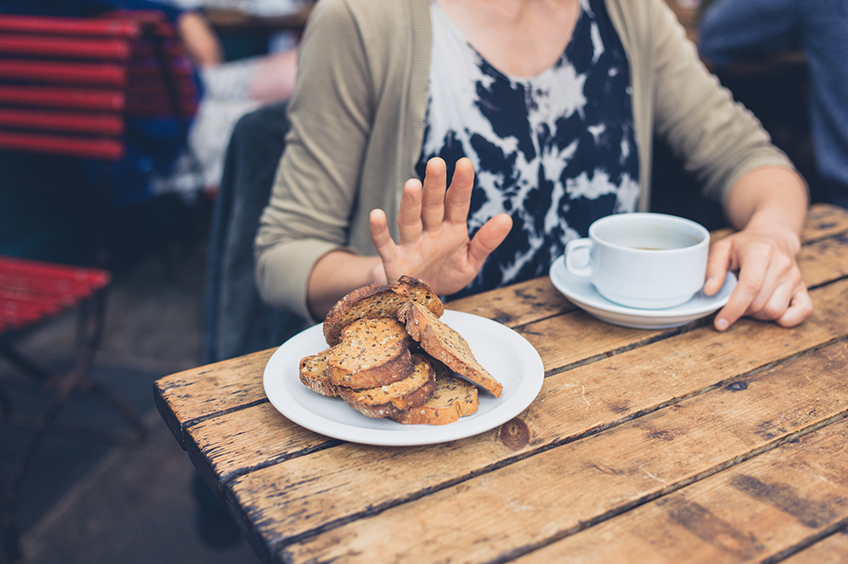People skip breakfast for many reasons, which is why it’s important to bust the myths, says ADSA spokesperson and registered dietitian Abby Courtenay. “It’s important to give South Africans from all walks of life the information and help they need to make a healthy breakfast a happy, lifetime habit.”
Here are five myths you should stop believing:
1. The myth: ‘I’m trying to lose weight so I skip breakfast’
The facts: Studies show that people who have a healthy breakfast habit have far better weight outcomes than those who regularly skip this meal. When you skip breakfast, you put yourself at risk of grabbing convenience foods on the go that often offer low nutritional value. This means that you’re more likely to overeat during lunch because your body is starving.
“It’s a common belief that if you want to lose weight you should skip breakfast,” says Kim Rutgers, a registered dietitian and ADSA spokesperson. “This is far from the truth. Skipping any meal will mean important nutrients, like vitamins and minerals, will be missed.”
She adds that sustainable weight loss and management is achieved through making healthy food choices, which includes eating a balanced breakfast.
2. The myth: ‘I don't have time for breakfast’
The facts: Mornings can be busy and stressful compared to supper in the evenings – you’ve got to get the children ready, make lunch and get to work on time. But the key to avoiding this is planning, preparation and smart choices to ensure you eat breakfast between two to three hours of waking up.
“From a time perspective, drinking is often far quicker than sitting down to a full meal,” says Courtenay. “I usually suggest making a nutritious smoothie. I encourage my patients to blend a small banana, oats, sugar-free peanut butter and low-fat milk. You can also add baby spinach. Not only is this the quickest meal, but it contains balanced portions of fruit, vegetables, minimally processed grains and healthy plant fats.”
If time is your biggest issue, prepare breakfast the night before – soak your oats, cut up fruit and boil eggs during your supper preparation so that breakfast is quick and easy the next morning.
3. The myth: ‘I am not hungry’
The facts: Many people will not wake up hungry. However, breakfast doesn’t need to be eaten immediately or in one go. Just make sure you aim to eat your first meal of the day within two or three hours of waking up. “Swap your smaller mid-morning snack and breakfast around,” suggests Courtenay. “For example, eat a fruit while you are getting ready for work or school, and then enjoy a bigger, more complete meal at about 10:00. This way you are getting in all the food and nutrients you need while honouring your body’s natural hunger cues.”
4. The myth: ‘I don’t like cereal or eggs’
The facts: A healthy breakfast doesn’t need to be traditional – if you don’t like them, don’t eat them. Remember too that many processed foods that are marketed as breakfast foods are full of sugar and nutrient poor. So while they may be convenient, they won’t necessarily be your healthiest option.
“Breakfast food doesn’t always have to be cereal and eggs,” says Courtenay. “You can also use your leftovers. Why not have leftover mince on toast with fresh tomato slices or use leftover pumpkin to make pumpkin fritters?”
According to Rutger, a healthy breakfast should include the three main nutrient groups – carbohydrates, proteins and fats. “When all three of these macronutrients in the right proportions are included in one meal, you are getting a balanced, nutritious meal,” she says.
5. The myth: ‘I save money by not eating breakfast’
The facts: In the short term, yes, skipping breakfast may save you money. But in the long term it can have unforeseen health expenses. Studies show that people who eat a healthy breakfast regularly are at a lower risk for expensive conditions including obesity, hypertension and heart disease.
Instead of skipping breakfast, find ways to make it more affordable. Courtenay says healthy eating does not need to be expensive. “It may take a little extra planning but when you are in the routine of eating well, you’ll actually save money,” she says. “Consider how much you can save with less store-bought convenience foods, takeaways and eating out.”
How to make breakfast healthy and affordable
Shop for bargains and discounts.
Buy in bulk where you can. You can share these purchases with your friends and family.
Buy fruits and vegetables that are in season.
Use your leftovers.
Plan your meals and budgets; proper planning can help reduce costs.
Make your own muesli – you will also be able to control the sugar content.
Avoid buying single portion items. For example, single serving tubs of yoghurt often work out to be more expensive than buying a large tub. Simply decant it into smaller reusable containers.
Fuente: www.health24.com
